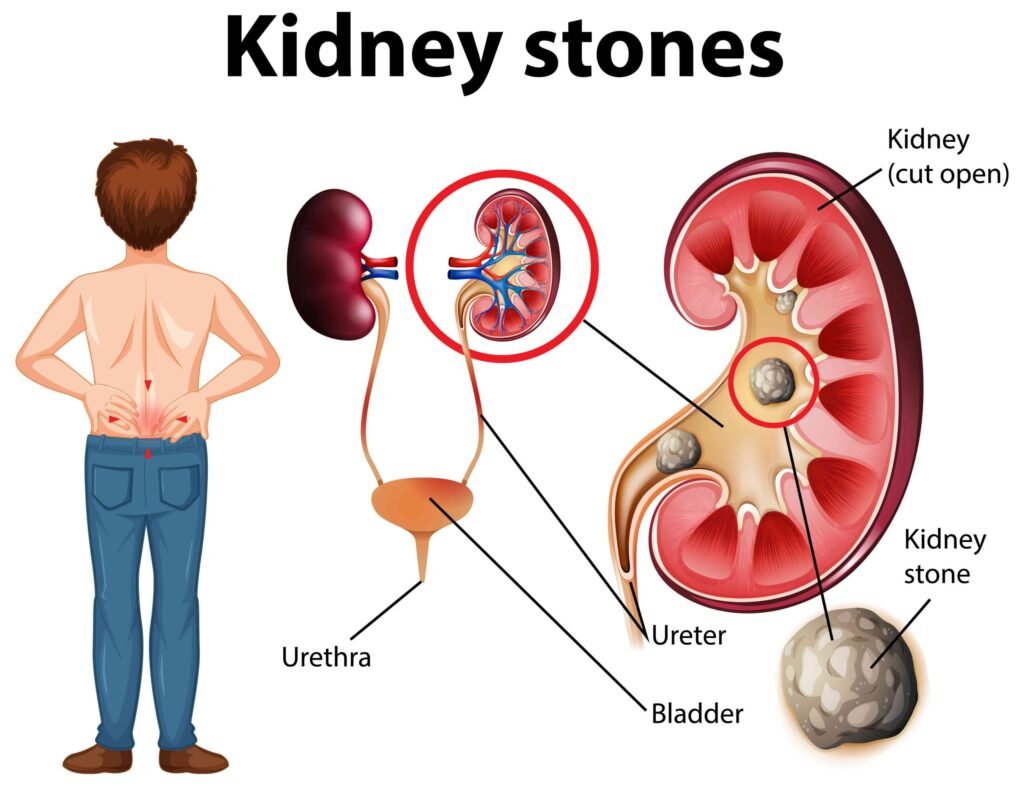About Kidney Stone Treatment.
About Kidney Stone Treatment Surgical Care Experts is your one-stop team for navigating the entire kidney stone treatment process. We understand the pain and disruption kidney stones can cause. Our dedicated professionals will guide you from initial diagnosis to post-operative recovery, ensuring a smooth and supportive experience.
Kidney Stone Treatment

How Kidney Stones are Diagnosed
Advantages of End-to-End Surgical Care
At Surgical Care Experts, we manage your entire kidney stone surgery experience:
- Pre-operative consultations: We discuss your condition, treatment options, and answer any questions you may have to alleviate anxiety.
- Surgical expertise: Our qualified urologists utilize state-of-the-art, minimally invasive techniques like shock wave lithotripsy or ureteroscopy to break up or remove stones with minimal discomfort and faster recovery.
Post-operative care: We provide comprehensive follow-up appointments to monitor your progress, manage any pain, and prevent future stone formation.
Symptoms of Kidney Stones
- Severe pain in the lower back or abdomen, often radiating to the groin
- Painful urination (burning or stinging sensation)
- Blood in the urine (may appear pink, red, or brown)
- Urgent need to urinate (frequent urination)
- Nausea and vomiting
- Difficulty passing urine or incomplete urination
Causes of Kidney Stones
Several factors can contribute to kidney stone formation, including:
- Dehydration (not drinking enough fluids)
- Diet high in salt, protein, or certain sugars (oxalates)
- Certain medical conditions (e.g., recurrent urinary tract infections)
- Family history of kidney stones
When to See a Doctor
If you experience severe pain in your back or abdomen, blood in your urine, or difficulty passing urine, consult your doctor promptly. Early diagnosis and treatment can prevent complications and ensure a faster recovery.
Risk Factors for Kidney Stones
- Family history of kidney stones
- Dehydration
- Obesity
- Certain medical conditions (e.g., gout, recurrent urinary tract infections)
- Certain medications
Complications of Kidney Stones
While uncommon, potential complications from kidney stone surgery include:
- Infection
- Bleeding
- Damage to surrounding organs
- Recurrence of kidney stones
Prevention of Kidney Stones
Patient Testimonials



FAQ's
Not all kidney stones require surgery. Small stones (less than 5mm) often pass on their own with increased fluid intake and pain medication. However, larger stones or those causing severe pain or complications might necessitate surgical intervention.
Surgical Care Experts offer various minimally invasive techniques for kidney stone removal:
- Shock wave lithotripsy: Uses high-energy sound waves to break down stones into smaller fragments that can then pass through the urine.
- Ureteroscopy: A thin, lighted scope is inserted through the urethra and bladder to reach the ureter (tube connecting kidney to bladder) and visualize the stone. Lasers or small instruments can then be used to break up or remove the stone.
Percutaneous nephrolithotomy: In rare cases, for large or complex stones, a small incision is made in the back and a thin tube is inserted into the kidney to access and remove the stone.
Recovery time depends on the type of surgery performed. Typically, with minimally invasive procedures, patients go home the same day or after a short observation period. Full recovery takes 1-2 weeks, with most people returning to normal activities within a few days.
While waiting for medical attention, pain medication and warm compresses on your lower back or abdomen can help manage discomfort. Drinking plenty of fluids can also aid in passing the stone.
Staying hydrated is key. Aim for plenty of water throughout the day. Dietary changes recommended by your doctor might also be helpful, such as reducing salt, animal protein, and certain sugars (oxalates) in your diet.
Your doctor might recommend dietary modifications to prevent future stones. This could involve reducing certain foods or taking medications to bind stone-forming substances. They will develop a personalized plan based on the type of stones you formed.


